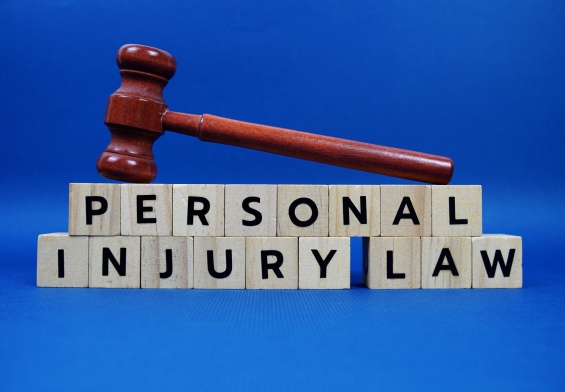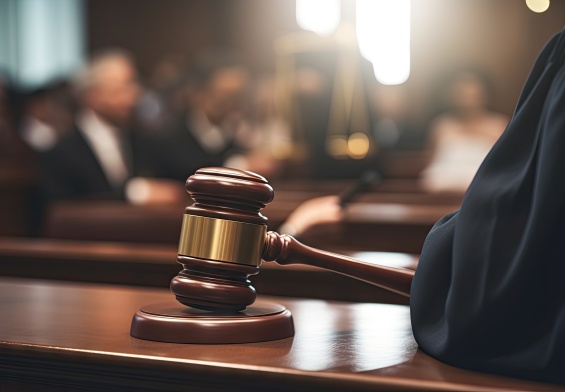Facing a legal issue without the money to hire a lawyer is stressful. Whether you’re dealing with criminal charges, a custody battle, an injury claim, or a workplace dispute, you need someone who understands the law. But if you can’t afford one, it’s easy to feel stuck and alone.
This is more common than you’d think. People facing legal challenges across the board often worry about getting help without going broke. And many assume legal support is only for those who can afford steep hourly fees.
But, that’s not the case. Free and low-cost legal help exists. You might qualify for a public defender, find a pro bono attorney, or get help from a nonprofit legal aid group. The legal system may feel out of reach, but there are ways to get help—even if you can’t pay.
The Constitutional Right to Counsel
If you’re facing criminal charges and can’t afford a lawyer, the court must appoint one. It’s a constitutional guarantee under the Sixth Amendment. In 1963, the Supreme Court’s decision in Gideon v. Wainwright cemented this right. It required state courts to provide attorneys to defendants who can’t pay for one.
But, this right applies only to criminal cases. If you’re going through a divorce, eviction, or trying to resolve a workplace or injury dispute, the same protection doesn’t apply. You might need to get help from other legal resources like legal aid organizations, nonprofits, and volunteer attorneys in civil matters.
What Happens If You Can’t Afford a Lawyer in Criminal Cases
If you’re charged with a crime and meet the income guidelines, the court will assign a public defender to represent you. They’re licensed attorneys employed by the state to defend people who can’t afford private counsel. In New Jersey, for example, the Office of the Public Defender reviews your income, employment status, assets, and expenses before assigning a lawyer.
In some lower-level cases, like those in municipal court, judges may assign private attorneys to represent defendants for free. This system exists under Madden v. Township of Delran, which requires New Jersey attorneys to accept certain pro bono criminal defense assignments.
Keep in mind that public defender systems and court-appointed counsel programs vary by state. Eligibility rules, funding structures, and availability differ depending on where you live. Check with your local court or legal aid organization to see what’s available in your area.
You’ll usually need to complete a financial disclosure form and request representation. If you’re denied, you can ask for a review—but act fast. Early action improves your chances of getting help before your next court date.
Pro Bono Services and Assigned Counsel
Not every case qualifies for a public defender. But, many attorneys still offer help through pro bono work—free legal services for people in need. In New Jersey, courts use a structured system to assign these cases, especially where public funds aren’t available.
Under Madden v. Delran, licensed attorneys must accept certain court-assigned pro bono matters. Some can earn exemptions through qualifying volunteer work, but the goal is to fairly distribute the responsibility of serving those who can’t pay.
Assigned counsel programs help fill the gap and give people access to meaningful legal representation. Pro bono efforts also support civil matters by taking the load off legal aid programs. If you’re unsure whether your case qualifies, ask. Many attorneys and programs want to help.
Limits of Free Legal Representation
While criminal defendants have a right to counsel, that protection doesn’t apply to civil cases. If you’re dealing with eviction, divorce, custody, or discrimination, the court isn’t required to appoint a lawyer—even if the consequences are serious.
Legal aid groups try to fill this gap, but they have limited resources. Income thresholds, long waitlists, and strict case criteria can keep many people from getting help. You might qualify if your case involves domestic violence, child protection, or immigration—but coverage varies.
If you need to file a case and can’t afford court fees, most states allow you to request a fee waiver. You’ll need to complete an “in forma pauperis” application or a similar form provided by the court. This form explains your financial situation and asks the court to waive filing fees. Court staff or self-help centers can assist you in submitting it.
In most civil matters, you might need to reach out to nonprofit services, law school clinics, or attorneys who offer low-cost or limited services. The help is out there, but it’s not automatic. You’ll need to be proactive.
Other Options if You Can’t Afford a Lawyer
If public defenders or legal aid groups can’t take your case, there are still ways to get help:
- Legal Aid Organizations Nonprofit groups that provide free or low-cost services for housing, domestic violence, immigration, and more.
- Law School Clinics Supervised students handle real cases for free, often in areas like family law, civil rights, and veterans’ affairs.
- Sliding Scale or Limited-Scope Attorneys Some lawyers adjust fees based on income or offer services for specific tasks, like document prep or court coaching.
- Self-Help Legal Resources State court websites often include free forms, guides, and videos. These are useful for simpler cases.
- Online Legal Platforms Websites offering affordable legal services such as brief consultations or document review. Good for straightforward issues.
If you speak a language other than English, most courts provide interpreters for hearings or translated forms for common legal procedures. Individuals with disabilities may also request accommodations like assistive listening devices or remote appearances. These services help make the legal system more accessible—be sure to ask court staff how to make a request.
Even if you don’t have the money for a lawyer, don’t assume you’re out of options. The first step is asking.
When You Need a Lawyer—and Where to Find One
In some situations, representing yourself could do more harm than good. If your rights, freedom, family, or finances are on the line, don’t try to go it alone.
- In criminal cases, a lawyer can protect your rights, challenge the evidence, and negotiate better outcomes.
- In family law matters like custody or divorce, an attorney can help you present your case and avoid long-term consequences.
- For employment disputes, like wrongful termination or harassment, an employment lawyer can explain your rights and build your case.
- In personal injury cases, many lawyers work on contingency, meaning you don’t pay unless they win.
These types of attorneys often offer free consultations or flexible payment arrangements. Even if you think you can’t afford one, reach out—the available options might surprise you.
What to Do If You’re Denied Help
If you’re denied legal help, don’t give up.
- Ask for a review or appeal. You may qualify based on updated or more detailed financial information.
- Gather documentation. Pay stubs, rent bills, medical records, or unemployment papers can support your claim.
- Contact many organizations. If one can’t help, another might.
- Look into alternatives. Volunteer lawyers, law school clinics, and limited-scope services are all worth exploring.
- Act fast. The sooner you start, the more likely you are to find help before a court deadline.
You’re Not Alone
Feeling like you can’t afford a lawyer is frustrating—but it doesn’t mean you’re out of luck. From public defenders to pro bono attorneys and legal aid groups, support is available if you ask for it.
The legal system can feel complex, but you don’t have to figure it out on your own. Whether you’re facing criminal charges or a tough civil dispute, there are people and programs ready to help. Even if you’re denied at first, keep going. Keep asking questions, and keep reaching out.
Everyone deserves a fair chance in court—no matter what’s in their bank account.
Resources
https://case-law.vlex.com/vid/madden-v-township-of-893123397
https://www.njcourts.gov/attorneys/pro-bono
https://www.nj.gov/defender/about/history/opdstatute.shtml
https://www.supremecourt.gov/pdfs/transcripts/1979/78-1595_01-07-1980.pdf




